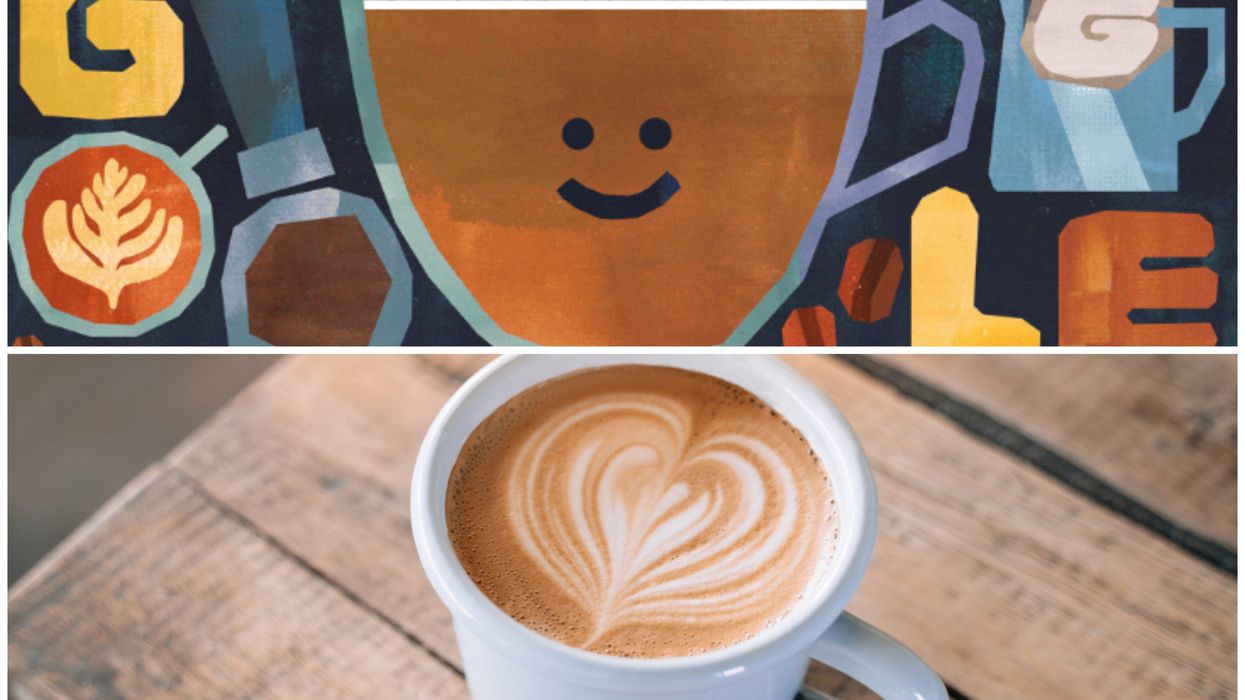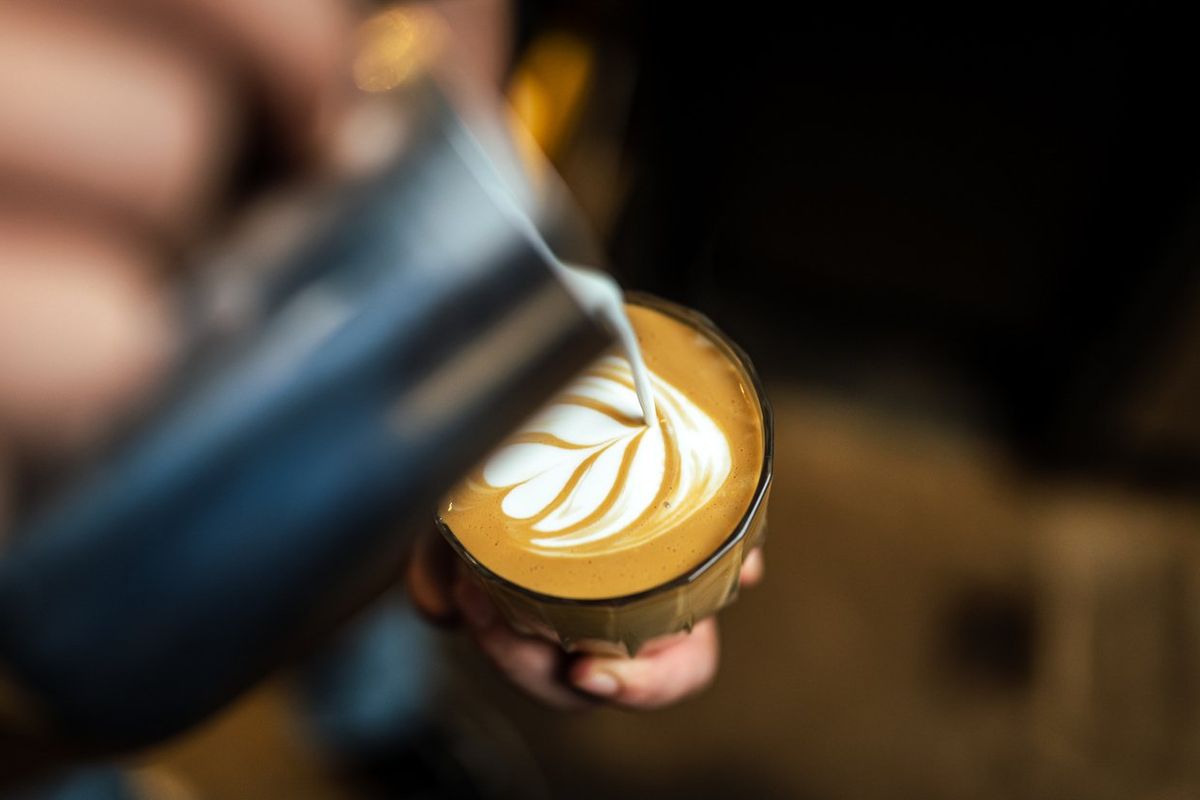Harriet Brewis
Mar 11, 2024

Today's Google Doodle celebrates the popular style of coffee
(Google/iStock)
Stronger than a cappuccino but still boasting a smooth layer of milk foam, the flat white has become a staple of cafés across the world.
Once considered the hipster drink of choice, now everyone’s into it – though some of us may gripe that the cup sizes are a little too small.
In fact, the pick-me-up is so popular that there is now an official "Flat White Day" that even Google has decided to mark.
Head to the search engine’s homepage today and you’ll see an animated Doodle, recreating how the coffee is made.
So why is 11 March dedicated to the drink? Because it was on this day, back in 2011, that "flat white" was added to the Oxford English Dictionary (OED), cementing its status in the zeitgeist.
The coffee is widely rumoured to have been invented in Australia and New Zealand during the 1980s when it cropped up on menus in Sydney and Auckland around the same time.
And yet, according to the OED, the "earliest known use of the noun flat white" occurred in 1971, when it was mentioned "in the writing of P. Shaffer".
The dictionary doesn't offer more clarification on who this P. Shaffer refers to, although it could be Paul Allen Wood Shaffer, a Canadian singer, author and musician, or the British playwrite Sir Peter Shaffer, who won an Oscar for Amadeus and Equus.

Typically served in a ceramic cup, it consists of an espresso shot topped with steamed milk and a thin layer of microfoam.
Its relative flatness (as the name suggests) compared to a cappuccino or latte, makes it popular with people looking for more intensity, without sacrificing a bit of creaminess.
Perhaps the most iconic aspect of the flat white is its often artistic topping, with skilled baristas creating feathered designs when polishing off the pour.
Of course, like all coffee styles it has developed over the years, and is now made using a whole host of different milks.
Now, when you order one from a shop, you’re typically asked if you want “regular milk or oat milk”.
Regardless, though times and tastes are constantly changing, people’s fundamental love of coffee never will.
Sign up for our free Indy100 weekly newsletter
Have your say in our news democracy. Click the upvote icon at the top of the page to help raise this article through the indy100 rankings
Top 100
The Conversation (0)













